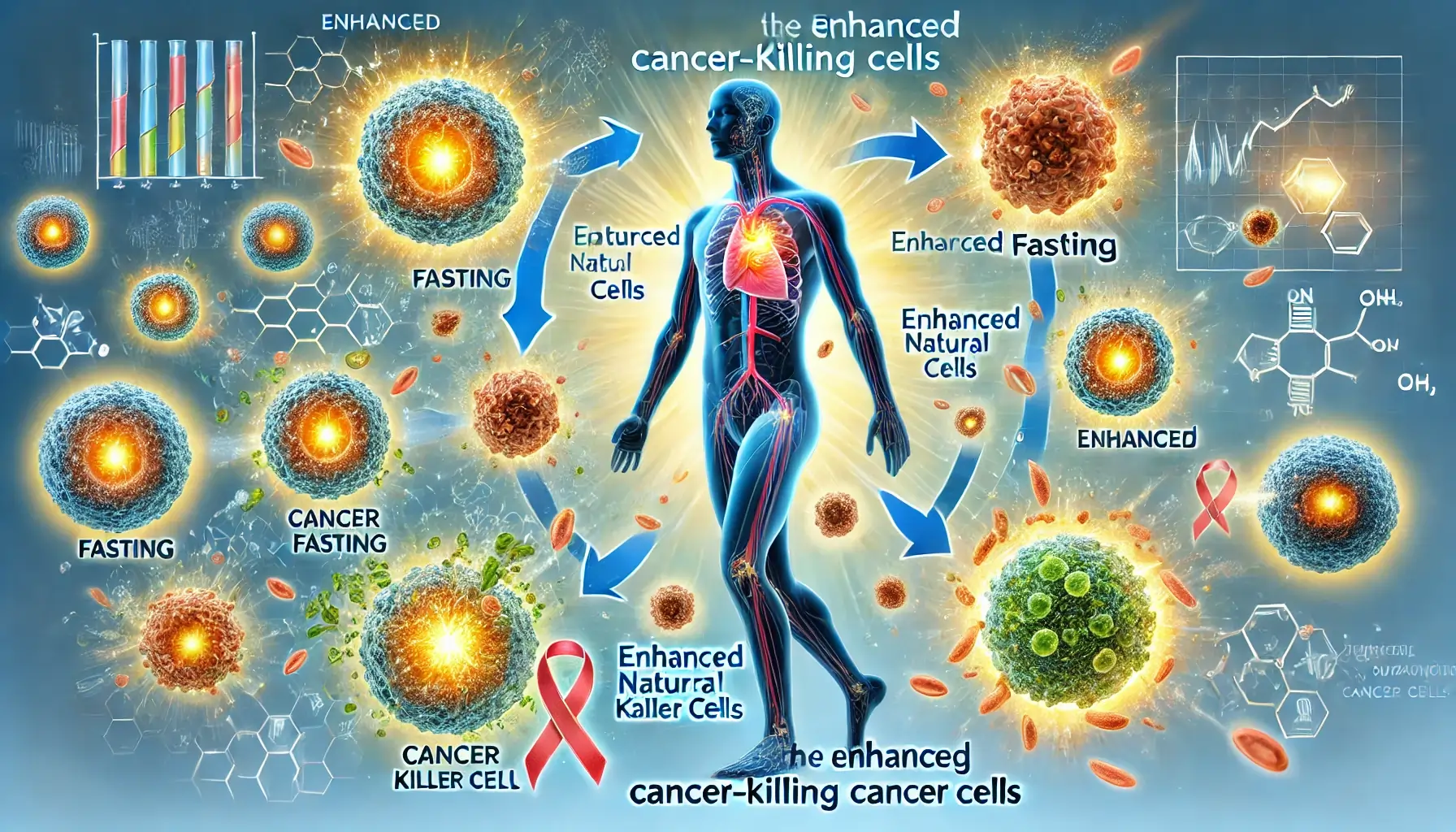Table of Contents
Fasting (Abstinence) Amplifies the Cancer-Fighting Abilities of Immune Cells
Fasting has long been recognized for its various health benefits, from weight loss to improved metabolic health. Now, new research has uncovered another compelling reason to consider Abstinence: it can significantly enhance the cancer-killing properties of immune cells. This groundbreaking study, highlighted by New Atlas, reveals how fasting can boost the effectiveness of natural killer cells in combating cancer.

The Science Behind Fasting and Immune Cells
Natural killer (NK) cells are a type of immune cell that plays a crucial role in the body’s defense against tumors and virally infected cells. These cells can identify and destroy malignant cells, making them a key player in the body’s natural cancer-fighting arsenal. The recent study demonstrates that Abstinence can enhance the activity and efficacy of these cells, providing a potent, natural method to support cancer treatment.
For more blogs like this please visit: sleeping sirens
Key Findings
- Enhanced NK Cell Activity: The research found that fasting significantly increases the activity of NK cells. These supercharged cells are more effective at targeting and destroying cancer cells.
- Improved Cancer Outcomes: In experimental models, Abstinence combined with cancer treatments led to better outcomes compared to treatments alone. This suggests that fasting can amplify the effects of traditional cancer therapies.
- Reduced Tumor Growth: The study also observed that Abstinence can reduce the growth rate of tumors, indicating its potential as a complementary approach in cancer management.
How Fasting Boosts Cancer-Killing Properties
Abstinence induces a range of physiological changes in the body that can enhance immune function. Here’s how it works:
- Metabolic Shifts: During Abstinence, the body undergoes metabolic shifts that promote the production of ketones. These ketones not only provide an alternative energy source but also enhance the function of NK cells.
- Stress Response Activation: Abstinence triggers a mild stress response that activates various cellular repair mechanisms. This response can boost the immune system’s ability to identify and destroy cancer cells.
- Reduced Inflammation: Chronic inflammation is a known contributor to cancer progression. Abstinence helps reduce inflammation, thereby creating an environment less conducive to cancer growth.
Practical Applications and Considerations
While the findings are promising, it is essential to approach fasting with caution, especially for individuals undergoing cancer treatment. Here are some practical tips for integrating Abstinence into a cancer care regimen:
- Consult Healthcare Providers: Always discuss Abstinence plans with healthcare providers to ensure it is safe and appropriate for your specific health condition.
- Start Slowly: For those new to Abstinence, it is advisable to start with shorter fasting periods and gradually increase the duration as tolerated.
- Stay Hydrated: Ensure adequate hydration during Abstinence periods to support overall health and well-being.
- Monitor Health: Regular monitoring of health parameters is crucial to ensure Abstinence does not negatively impact overall health, especially in individuals with underlying conditions.
The discovery that Abstinence can supercharge the cancer-killing properties of immune cells adds a powerful tool to the arsenal against cancer. By enhancing the activity of natural killer cells, fasting offers a natural, complementary approach to traditional cancer treatments. For more detailed information on this groundbreaking research, you can read the full article on New Atlas here.
More blogs: https://sleepingsirens.com

